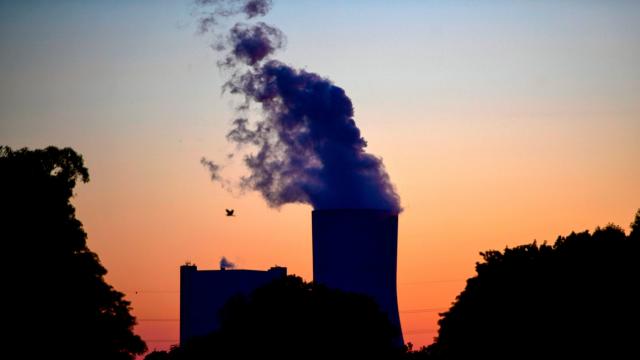The economic crisis brought on by the coronavirus has dip in carbon pollution ever recorded. Governments are starting to figure out how to recover. They can invest in a green economy to address climate change, or they can prioritise the entrenched dirty industries. The decisions made today will play a large role determining the fate of future generations.
In a paper published in Nature on Tuesday, climate researchers argue this is exactly why a green recovery is necessary worldwide. Elected officials, experts, and even the United Nations have already spoken out in support of this, but new paper shows how the choices could play out over the next 30 years. Even if governments do the bare minimum and limit emissions to pre-pandemic levels next year, they could prevent 128 gigatonnes of carbon dioxide from entering the atmosphere by 2050. On the other hand, if leaders decide to pursue a reckless recovery agenda, the world could wind up emitting another 230 gigatonnes of carbon dioxide by 2050. The authors from the University of California, San Diego reached these conclusions after analysing historical patterns post-crises and linking them to climate models.
“Before we focus on rewriting history, it’s very helpful to understand what history tells us,” co-author David Victor, a professor of international relations at the university, told Gizmodo.
Though there’s never been quite a moment like this one in history, the world has seen a number of economic crises in the past. There was the 1973 oil crisis when oil prices skyrocketed, the fall of the Soviet Union in 1991, the global financial crash of 2008, and more world-shifting events. The authors included all these historical events and the ways emissions increased or decreased after them into their analysis. So far, the global plans for recovery this time around have skewed toward investments and policies that could increase emissions. The U.S. has been hellbent on eliminating environmental regulations over the course of the pandemic. In one month, China authorised more construction of coal plants than in all of 2019. Both have done so in the name of economic recovery.
Carbon stays in the atmosphere for decades, meaning these recovery plans will reverberate long after the pandemic passes. If the world goes back to business as usual next year and emissions go as they would’ve pre-pandemic, the impacts would still be profound. The analysis shows carbon concentrations in the atmosphere would be 10 parts per million (ppm) lower by 2050 than if there had been no pandemic in the first place. In a world where every ton of carbon of counts, that’s no small deal.
But if the world pursues a dirty recovery, those gains would be erased. The extra 230 gigatonnes of carbon burned ” equivalent to more than 6 years-worth of today’s emissions ” would raise atmospheric concentrations of carbon by 19 ppm, putting us closer to the climate danger zone.
“This year’s crash in emissions will put a dent in cumulative emissions through 2050,” Ryan Hanna, a research scientist with the Solar Resource Assessment and Forecasting Laboratory at UCSD, told Gizmodo, noting that the choices for recovery could have “twice the potential effect on emissions and warming than does the one-year crash in emissions.”
Many European countries are seizing the moment to implement policies that reduce their emissions all while boosting the economy. The European Union wants to invest more than $US1 ($1.5) trillion to create jobs in the clean energy sector, improve public transit, and reach zero emissions by 2050. Looking to fossil fuels might be the easy answer in the short-term, but it’s a damaging one that will come back to bite the arse of countries like the U.S. and China when they face more extreme weather as a result of all those emissions.
“There are lots of opportunities for economic recovery that also reduce emissions,” Victor said. “That’s going to be the trick here: to find things that either benefit the environment for the long term or at least don’t harm it but also quickly generate jobs and income.”
Everyone in the world could use a little relief from the current crisis. However, most people probably want a habitable planet, too. World leaders don’t have to sacrifice one for the other.
Correction: 6/12/2020, 3:26 p.m. ET: The article has been updated to include Ryan Hanna’s correct title.
